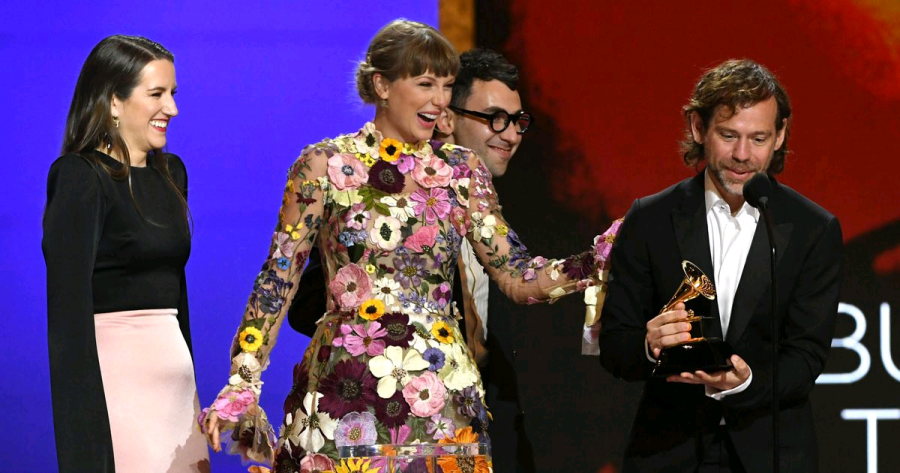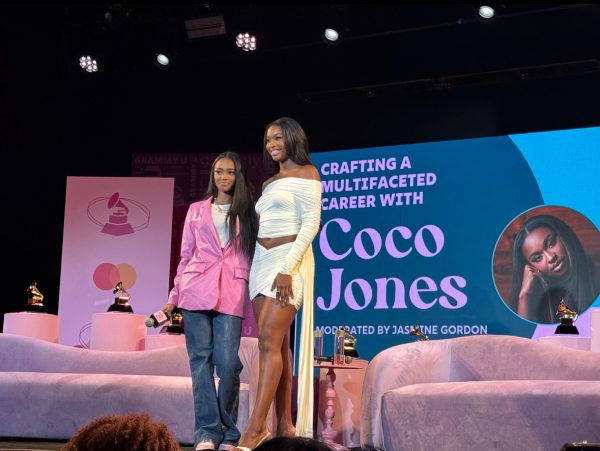The Grammys Face Scrutiny for Excluding Black Artists
The 63rd annual Grammy Awards aired on March 14, and while artists such as Taylor Swift, Megan Thee Stallion and Billie Eilish won big, people paid more attention to the racial disparities in the awards show.
When the Grammys announced the 2021 ceremony’s slew of nominations last November, eyebrows raised after one of the biggest stars of the business, The Weeknd, did not receive a single nomination for his critically-acclaimed album “After Hours.” Experts predicted the album to be a clear frontrunner for the coveted album of the year award, and its single “Blinding Lights” was arguably the biggest song of 2020.
However, the Grammys left the Weeknd out in the cold with zero nominations. They then poured salt in the wound when the Recording Academy requested a performance from The Weeknd for the ceremony, which he refused.
“The Grammys remain corrupt,” The Weeknd tweeted soon after the nominations were released. “You owe me, my fans and the industry transparency.” He has since announced that he will no longer submit his music for Grammy consideration or attend the ceremony itself again. The Weeknd also blamed the Grammy’s “secret committees” for purposely sidelining Black artists in an outdated voting system.
The Weeknd is not the only Black artist to be overlooked by the Academy. In the Grammy’s 61-year history, only ten artists of color have won album of the year. The last Black winner of the award was Herbie Hancock in 2008 for “River – the Joni Letters.” This clear disparity has created an alienation between the Recording Academy and Black creators, as mega-stars such as Frank Ocean, Kanye West, Drake and Beyonce have publicly rebuked the Grammys for their questionable attitude surrounding race.
Drake, in particular, touched upon this in his acceptance speech for “God’s Plan,” which won best rap song of 2019. “All my peers that make music from their heart that do things pure and tell the truth, I wanna let you know we’re playing in an opinion-based sport, not a factual-based sport,” he established as the instrumental music swelled behind him to close out the speech. “This is a business where sometimes it’s up to a bunch of people who might not understand what a mixed-race kid from Canada has to say or a fly Spanish girl from New York or anybody else, or a brother from Houston right there, my brother Travis [Scott].”
The televised portions of the 2021 ceremony depicted the Recording Academy as a group that celebrated Black culture, and they paid their respects mainly through montages, musical performances and tributes. Nevertheless, the final award of the night, record of the year, went to Billie Eilish, a white woman, for the mellow “everything i wanted.” Eilish stammered through her acceptance speech, admitting that she believed the award should’ve gone to Megan Thee Stallion for “Savage – Remix.”
Despite Eilish’s apologetic response, Twitter rebuked the Grammys for its apparent performative love for Black creators. “No disrespect to Billie Eilish, whose music I love, and handled [the win] graciously.” said writer Stephen Thompson in a Tweet on March 14. “But that is the most Grammys move EVER, to pat themselves on the back for how often they’ve honored Beyonce and then, AGAIN, pass her over for the big prizes. Absolutely insane.”
For context, Beyonce may hold the record for the most Grammy wins with 28, but she has never won in major categories such as album of the year or record of the year. The Grammys have a tendency to nominate Black artists for smaller R&B or Hip Hop categories’ awards, but then snub them in the larger, more mainstream categories.
The upset win just adds to the Grammys’ tendency to award white musicians over the more deserving Black artists. The Recording Academy chose Macklemore’s “The Heist” over Kendrick Lamar’s “Good Kid, m.A.A.d city,” Taylor Swift’s “1989” over Lamar’s (once again) “To Pimp a Butterfly,” and Adele’s “25” over Beyonce’s “Lemonade.” In Lamar’s case, “To Pimp a Butterfly” provided an excellent exploration into the complicated relationship between white and Black America, yet the Grammys chose “1989.” While many considered “1989” a great album, it didn’t spark the important conversations that “To Pimp a Butterfly” started, and everyone at the 2016 ceremony knew Lamar deserved to take Album of the Year home.
After the resurgence of calls for social justice and the Black Lives Matter movement last June, the Grammy’s pledged to do better by its Black artists. And, in some ways, it has – H.E.R., a Black female artist, took home Song of the Year for “I Can’t Breathe.” However, this year’s ceremony still showed that the Recording Academy has a long way to go before fully righting its wrongs.











































































































































































































